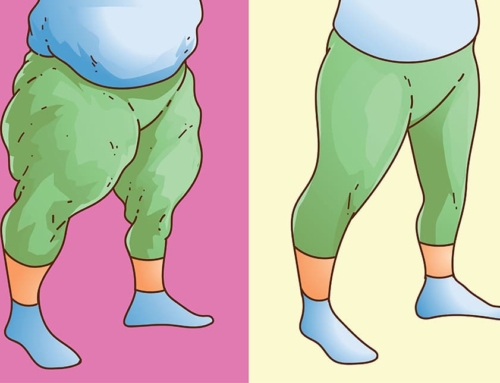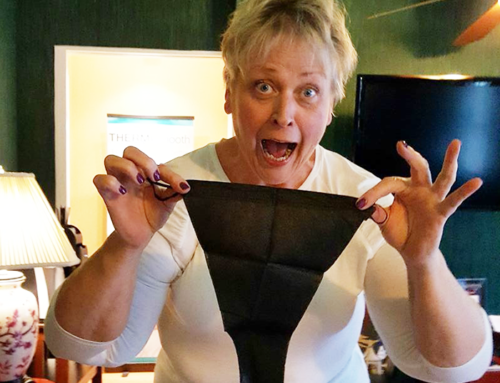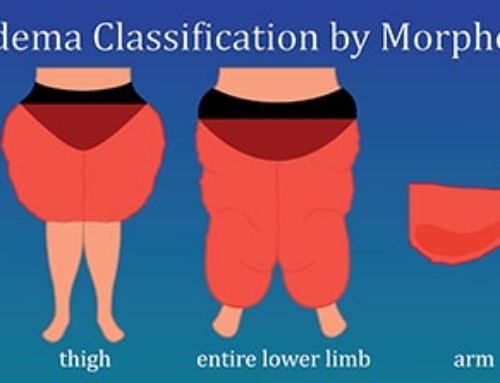Lipedema Diagnosis
By Denise Bennett
 The early Lipedema diagnosis is essential in preventing the progression, yet many of us face delays. Many of those delays are due to the lack of education in the medical community about Lipedema, and some of the delay is our own fault. Say what? Keep reading.
The early Lipedema diagnosis is essential in preventing the progression, yet many of us face delays. Many of those delays are due to the lack of education in the medical community about Lipedema, and some of the delay is our own fault. Say what? Keep reading.
For at least 25 years, (I was 32 at the time) I had been dismissed regarding a variety of issues I had experienced with my legs. Of course, I had known that my legs were unusually shaped and larger than normal for at least 15 years prior to ever mentioning it. However, the first time I noticed red, painful nodules in my calves, I made an appointment with my dermatologist. He suggested that there was “something” vascular going on and that I should seek the opinion of a vascular specialist. I looked up information on a vein clinic, made an appointment, and a few days prior to my scheduled appointment I was contacted by one of the nurses in the clinic. She talked to me about what I could expect from my appointment, and told me, “Wear a pair of shorts for the examination.”
I called the next day and cancelled the appointment. Missed opportunity.
You understand this, right? The thought of wearing shorts in front of anyone was so terrifying, that even though I knew something was wrong, I couldn’t take the steps necessary to keep that appointment. Subsequent conversations with physicians always led to discussions about weight, diet, or the type of “build” that I had inherited. My physician referred to my legs as “upside down champagne bottles”, but never suggested I needed to do anything about them. Meanwhile, my legs were becoming more painful and I continued to be told that there was nothing wrong with them.
At age 56, I began eating a low carbohydrate/high protein diet, successfully shedding nearly 80 lbs. I measured my calves weekly without any decrease in circumference. After hearing about Lipedema, I asked a weight loss physician if they had ever heard of it. No, they had not. She encouraged me to find someone who had. I contacted a Plastic & Reconstructive Practitioner at an Integrative Lymphedema center I had heard about through Lipedema Facebook group members and was diagnosed.
I was apprehensive about having the Lipedema talk with my personal physician. You probably are too. I had never even mentioned my suspicion to him nor had I ever discussed my legs with him. Can you imagine the collective storytelling we all could engage in? We’ve all heard of or experienced horrifying encounters with the medical professionals as women with Lipedema.
Once I had my official Lipedema diagnosis, I felt confident to bring up the subject with my doctor. I armed myself with a two-inch thick folder full of information, specifically directed to the medical profession. When I asked him if he was familiar with Lipedema, he responded affirmatively. I said, “I have been diagnosed with Lipedema.” I told him how the Lipedema diagnosis had been made, and I watched his face and could see that he was digging for data in his memory. He was familiar with Lipedema, but initially he was confusing it with lymphedema. I could see it all coming together in his eyes. I handed him the binder of information, told him I was planning to have Liposuction for Lipedema, and asked for his help in supporting me as I moved toward surgery. He said yes, and although I left his office feeling that he was somewhat apprehensive about my plans. I think he realized that he had nothing better to offer me. And he did support me 100%. He had watched my determination to lose weight and he KNEW how committed I was to remaining healthy. After my surgeries, I showed him my before and after photographs. He was shocked at the change, and he honestly “connected” with me that my quality of life had improved and would continue to improve as a result of stopping/halting the progression of Lipedema. It was a proud moment.
My story is just my story. There is no right or wrong way to communicate with your physician about getting a Lipedema diagnosis or letting them know that you secured a Lipedema diagnosis elsewhere. The most important thing is this: focus on getting the diagnosis/treatment you need. I, no doubt, played a role in the delayed diagnosis for myself. Perhaps if I had gone to that vein doctor 25 years ago, my diagnosis would have come sooner. Maybe I would have been Stage 1, and the progression of my disease and course of treatment could have been entirely different. Maybe not. I do know this much. The shame I felt about the appearance of my legs emotionally prevented me from seeking treatment and diagnosis. Not just in that moment 25 years ago, but in the years that followed. I never revealed that my legs were painful to touch, or that I bruised far too easily, or that I experienced swelling in my calves as the day progressed. I kept my mouth shut. I was silenced by the fear of; criticism; of being “abnormal”; of being accused of not trying to lose weight; and of the emotional pain and embarrassment of showing anyone my legs.
My suggestions for a “successful physician encounter” are:
- Bring a support person with you. This can be a spouse, a friend, a fellow lipedema patient, or even a binder full of information from medical experts.
- Make an appointment and go. Go, expecting that the doctor may not know what you are talking about, or better yet, let them know in advance that you are planning to discuss your concerns about Lipedema. This gives them a chance to “brush up” on the topic. Don’t be surprised when they walk into the exam room and say, “so, you’re here to talk about Lymphedema?” Sigh.
- If at all possible, have a history of working on yourself. This speaks volumes to your doctor. It is harder to dismiss someone who is clearly engaged in improving their quality of life, and has made serious attempts to guard their health.
- Ask for help. It is hard to turn away a person who is asking for help.
- If they turn you away, or dismiss you (and this does happen), reach out to Lipedema support groups, blogs, etc. and seek another medical professional. Pat yourself on the back for your attempt and move on. If none of these work…
- Take a deep breath and repeat previous steps.
If you think you might have Lipedema and would like to obtain an professional Lipedema diagnosis from an expert on Lipedema, contact Marcia V. Byrd, MD by calling 770-587-1711 or filling out the contact form at the right of this page.
© 2018 Lipedema Surgery Center. All rights reserved.






